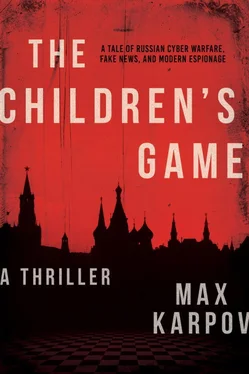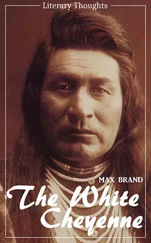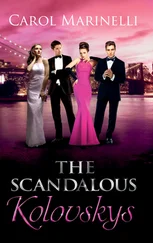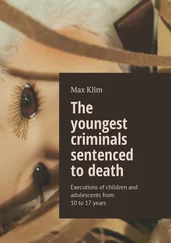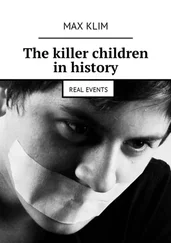Max Karpov
THE CHILDREN’S GAME
“The person who yells ‘Thief!’ the loudest is the thief himself.”
—Old Russian saying
After the long winter, it was spring again in Moscow. The last crusts of sooty snow had melted from the curbs and the city parks were bright with the colors of tulips and lilacs. At the Kremlin gardens, the apple and cherry trees were in bloom, filling the air with a familiar scent of anticipation.
On nearby Boulevard Ring Road, an unmarked white cargo van was moving through afternoon traffic, away from the great onion domes of the Cathedral of Christ the Savior, where ten days earlier President Putin and five thousand worshippers had gathered for Easter Mass.
The van’s passenger, Ivan Delkoff, could hear the swish of the wet roadway and the bleats of car horns as the van moved through central Moscow traffic. But he could not see where they were going; he could only imagine. A large man with an aversion to enclosed spaces, Delkoff was seated in the windowless rear cabin of the van, facing backward, dressed in the sun-faded fatigues and combat boots he wore every day, as a familiar-sounding Russian music played faintly through the speakers. The only personal possession he carried besides his ID was a small photograph of his son, staring at the camera with his dark, innocent eyes, dressed in the military uniform he’d been wearing on the afternoon he was killed.
The drive alternated between the stop-and-go of city traffic and the full-on of the freeway, so that eventually Ivan Delkoff stopped guessing where they were and thought instead of the odd chain of events that had brought him here. And of the meeting he would soon be having with a man once known as Russia’s “dark angel.”
Delkoff was in his late forties now, a colonel in the GRU, Russia’s military intelligence service, although he still thought of himself as a foot soldier in his country’s larger war. He woke most days knowing that he had a role to play in Russian history, without knowing exactly what it was. Delkoff’s stark appearance—the long, serious face and wide mouth that flattened like a piece of string—often caused people to underestimate him, to miss the tenacity and intelligence that had made him an accomplished military leader. In the Donbas, Delkoff’s special forces units had routed the Ukrainian army and various ad hoc battalions, setting the de facto borders for a new “people’s republic.” For a time, some of the Russian separatists there had taken to calling Delkoff the region’s “defense minister,” a distinction he privately enjoyed. There were others who called him “the crazy colonel,” which he didn’t enjoy so much.
Like many in Russia’s military intelligence branch, Delkoff had married young and divorced young. The death of Pavel, his only son, last summer in the Donbas had only deepened his commitment to the motherland. But it had also made him less tolerant of the Kremlin’s political management of eastern Ukraine. Delkoff understood that the undeclared war in the Donbas had become the front line in a larger conflict, a moral and cultural war for Russia’s future. But eastern Ukraine was also where that war had stalled. And Delkoff, like many Russian patriots, had come to resent the Kremlin because of it, especially its policy of sending men to fight without uniforms, to be buried in unmarked graves. There was a dangerous hubris now in Moscow, troubling signs that the average Russian did not see.
He’d spoken of it briefly over the winter with a Ukrainian journalist, who promised not to quote him. But then he’d done so anyway, a little more accurately than Delkoff would have liked, attributing his comments to “a Russian colonel on the ground in the Donbas.”
Three weeks later, Delkoff had been called back to Moscow, on the pretense of a special assignment from the Kremlin. He was given a small office in the city and a generous weekly salary to do nothing but show up each day and read reports. A “case officer” was assigned: a short, broad-faced man who sat with him in afternoon “debriefings,” asking questions and taking notes. Based on what the officer asked about Ukraine, Delkoff began to suspect that he was being set up for treason. He’d decided to vanish before that happened, to travel to Belarus where a small network of friends and family would take him in.
But then Ivan Delkoff learned that his “assignment” wasn’t from the Kremlin after all. Two days before he planned to disappear, Delkoff found out that it was actually Andrei Turov who had summoned him to Moscow. And knowing that changed everything.
Turov had once been part of the president’s inner circle, the Leningrad coterie that formed Putin’s unofficial private politburo. He’d worked briefly for the FSB, successor organization to the KGB, and then as secretary of security services, early in Putin’s presidency. But for the past fifteen years, Turov had run his own private security business, based in Moscow. His clients included the Kremlin, for whom Turov occasionally did “black ledger” work, benefiting the president but never tied to him directly. In the mid-2000s Putin had supposedly called Turov Russia’s “dark angel.”
But that was then. More recently, there had been stories of a rift between the president and Andrei Turov. Last fall, several of Turov’s branch offices had been seized by the government, and there was talk now that he was under pressure to leave Russia. The stories echoed those of other powerful men who had shown too much ambition or independence in Putin’s Russia. Men such as Mikhail Khodorkovsky, once the richest man in the country, who’d spent ten years in a Siberian prison camp after crossing the Russian president. Or Boris Nemtsov, the former first deputy prime minister, a prominent Putin critic who was gunned down in front of the Kremlin in 2015. Or Alexander Litvinenko, the former KGB officer who accused Putin of corruption, then died an agonizing public death over twenty-three days from a dose of radioactive polonium.
The idea that Turov had crossed over to the president’s less-than-forgiving side was what made this April summons particularly interesting to Ivan Delkoff. It was the only reason he was in the back of this van today and not in Belarus.
An hour passed, and another ten minutes. Finally the traffic sounds began to fade. Delkoff pictured the neighborhood they were in: breezy lawns, shade trees, new flowers. One of Russia’s new gated developments outside Moscow. Delkoff had heard that Turov liked to do business in rented houses, rather than in Moscow offices or in the mansions favored by the oligarchs . He listened as the cargo van slowed, backed up, and came to a stop; he heard the mechanical whirring of a garage door.
The man who opened the doors of the van looked familiar: small and thickset, with a stubbled face and shaved head. This was Anton Konkin, Turov’s loyal gatekeeper, like himself a former FSB officer. Delkoff followed the smaller man down a hallway to a dark-paneled library, where Konkin gestured him in and closed the door.
The room was unlit, with a floor-to-ceiling bookcase, dark-wood tables and chairs, a leather sofa. Like the rest of the house, it felt new, as if no one actually lived here. But then, scanning the furnishings, Delkoff saw that Andrei Turov was in the room, too, seated behind a desk in the corner.
“ Zdravstvuyte, ” he said, greeting Delkoff with the formal geniality of an innkeeper. He offered a firm handshake and motioned for him to sit on the leather chair in front of the desk. “It’s an honor to see you again. It took us a while to get you here.”
Читать дальше
